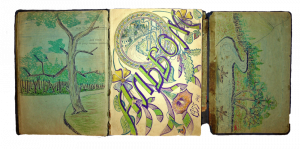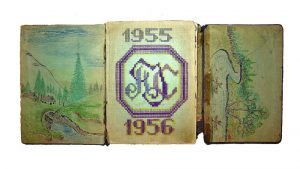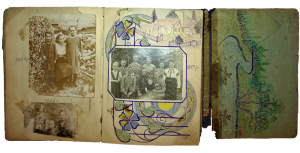Hanna Ivantsova
“My childhood ended so suddenly”
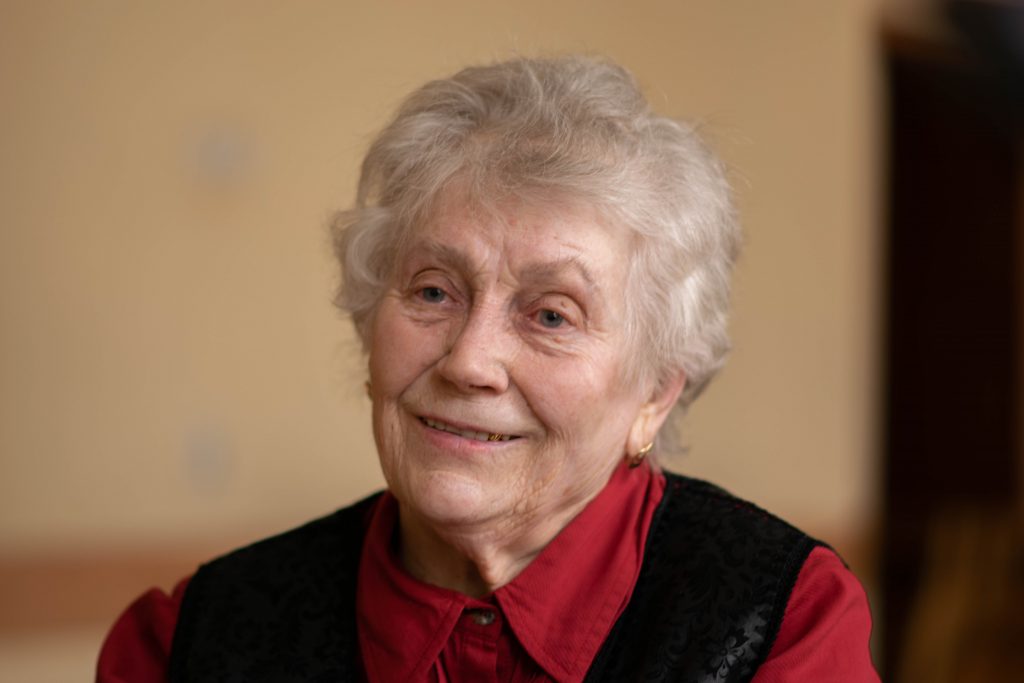
Hanna was born in 1943 in Rashkivtsi village (Husiatyn district, Ternopil region now).
Hanna’s father, Panteleimon Slupskyi, worked as a secretary of the village council in the interwar period, headed Prosvita, and was a member of the OUN. For this, in 1948, the Soviet authorities sentenced him to 10 years in prison under Art. 54. Two years later, in January 1950, six-year-old Hanna was deported with her mother and older sister to the Algach special settlement in the Amur region, at that time, part of the RSFSR near the border with China, where the family lived for 21 years. Before being evicted, they were held in the Kopychyntsi prison in the Ternopil region for two months.
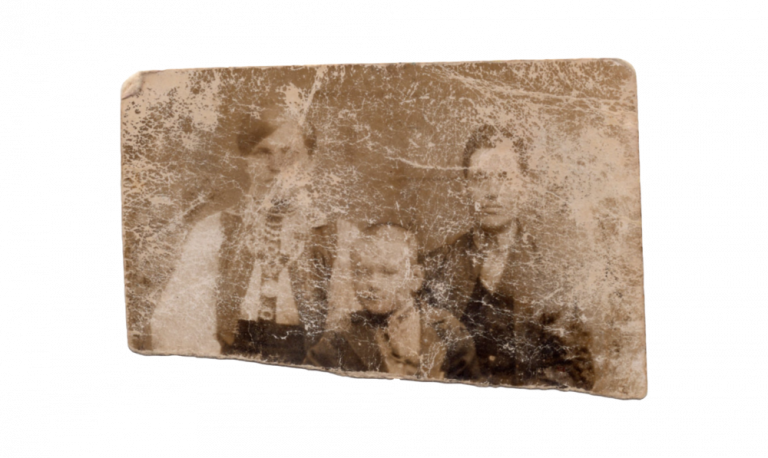
On the left – Kateryna Slupska (mother), in the center – Ivan Slupsky (brother), on the right – Panteleimon Slupsky (father), Rashtivtsi, 1926.
Hanna recalled her prison experience:
“First, we were brought to the village council, where we were all registered and counted. I remember I asked to go to the bathroom and I was taken outside behind the village council, I took off my pants with frozen hands, and the soldier was standing behind me with a rifle. Believe me, I still remember the face of that soldier.”
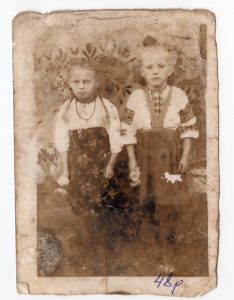
There were 20 families in the cell at the same time. “There was nowhere to lie on the floor, 20 families slept in turn (…), each family had a child, let’s say. They had nowhere to sleep! Everyone lay down on the floor like that and took turns sleeping.”
Due to overcrowding and unsanitary conditions, lice spread in the prison. To combat the lice spreading, the prison authorities ordered all children, regardless of gender, to get a haircut. “I remember well when the commandant came and ordered all the children to get a zero haircut so nothing can live in the hair. And I had two beautiful blond braids. And I was very afraid they would be cut. And so it would have happened, but it turned out that the neighbor had vodka. They averted that trouble for a bottle of vodka.”
After two months of imprisonment, the family was sent east by prisoner transport. The journey lasted one month and became a dangerous ordeal that not everyone could endure physically. “The road was very difficult. Cold and hunger tormented us the most. Because everything we could get from home we ate in prison in two months. And it was also scary that not everyone survived. People died on the way. Three people from our village died – Polos Mahda, Polos Kyrylo, and Polos Petro, their son. All three have died and were removed from the train car on the way, while the train kept moving. None of the relatives knows where their graves are, and we were on the moving train so we don’t know either”, Hanna recalled.
At large stations, several people came out of each car to bring balanda and bread. However, sometimes the distance between the stations was too long and people in cattle boxes were left without food for more than a day.
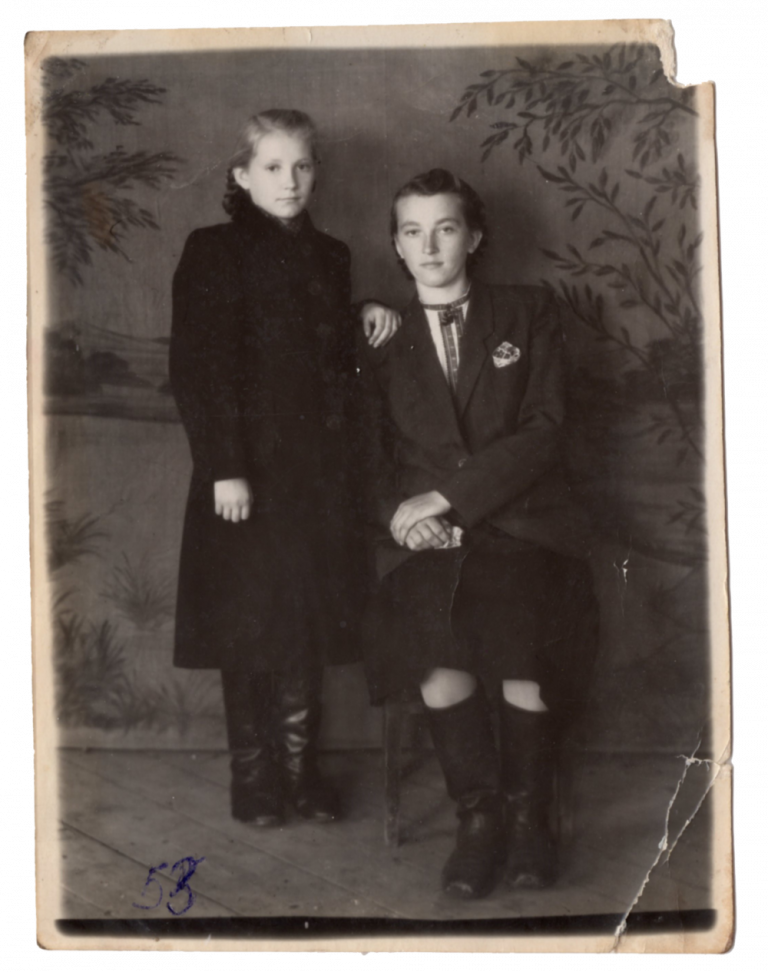
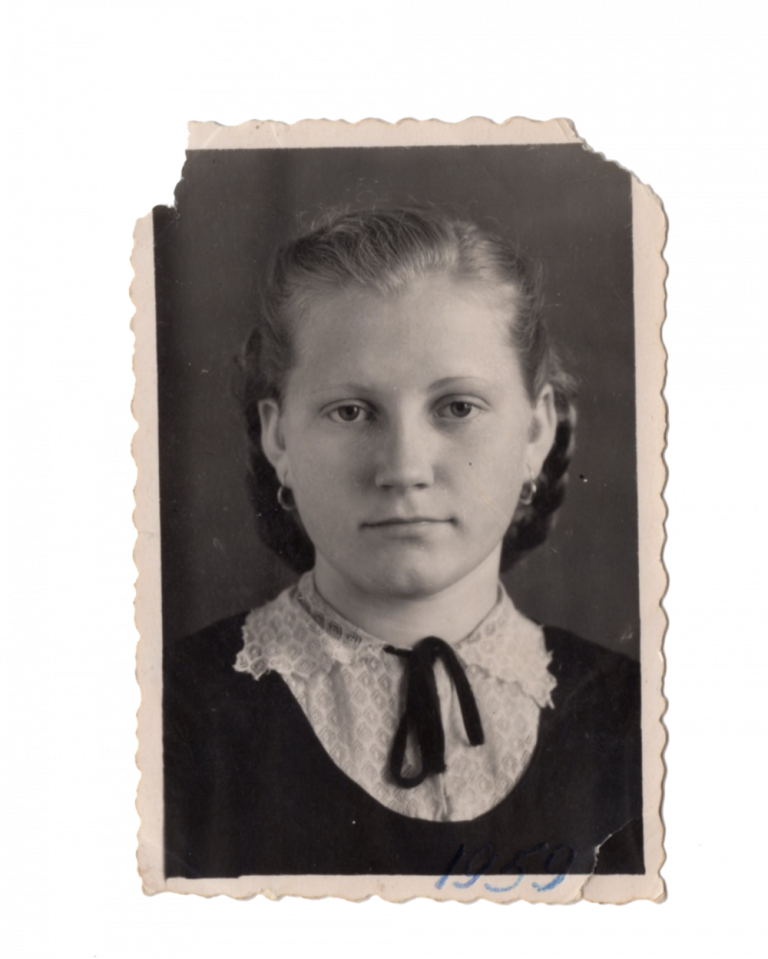
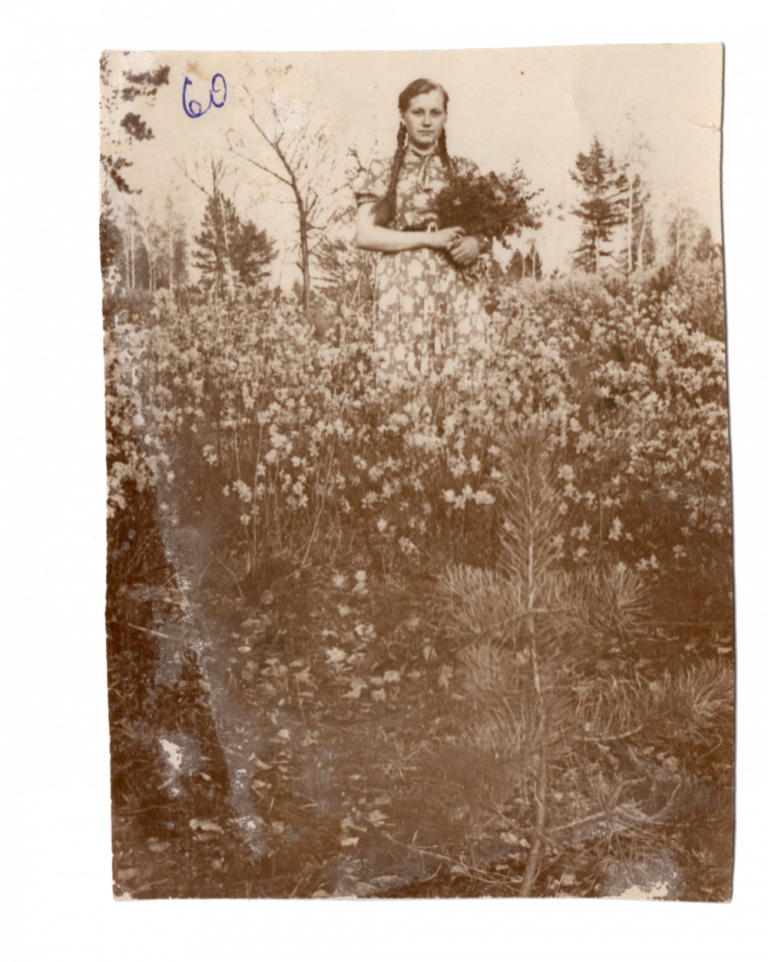
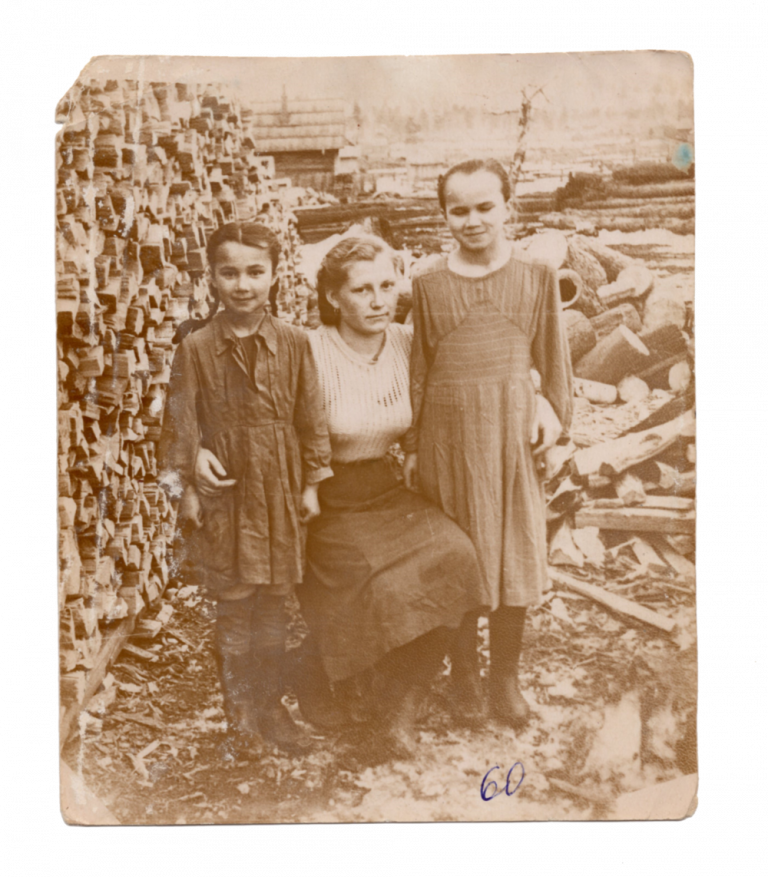
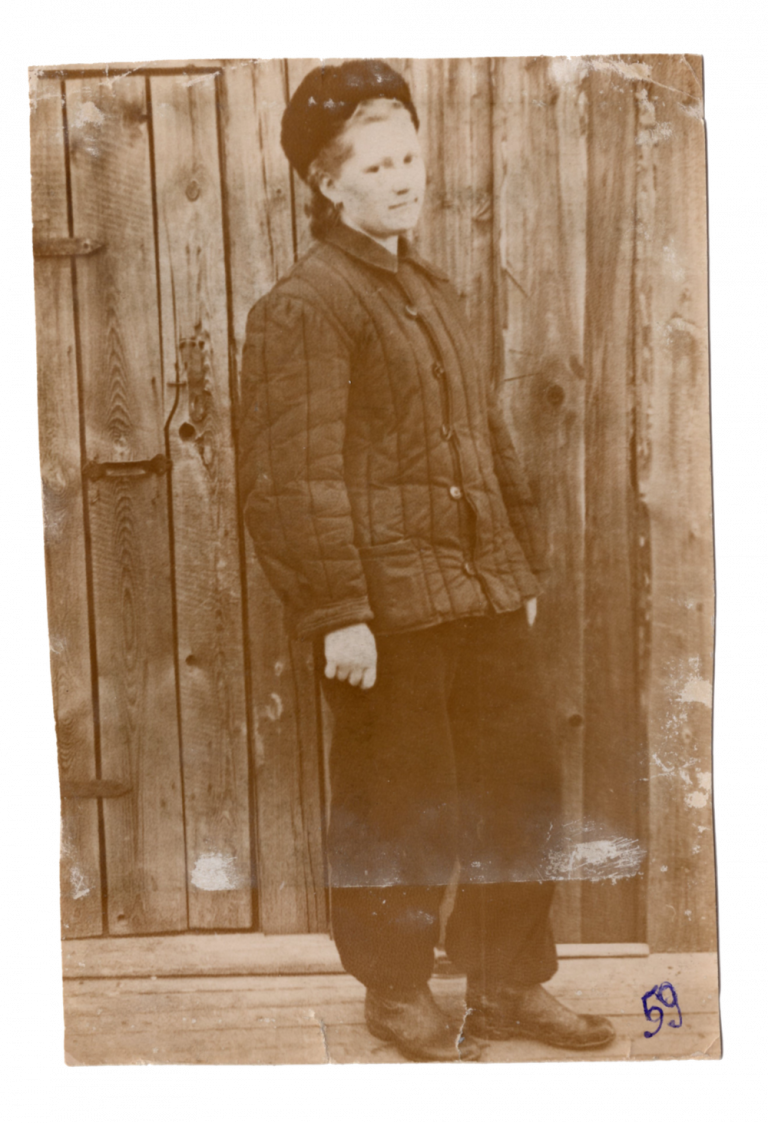
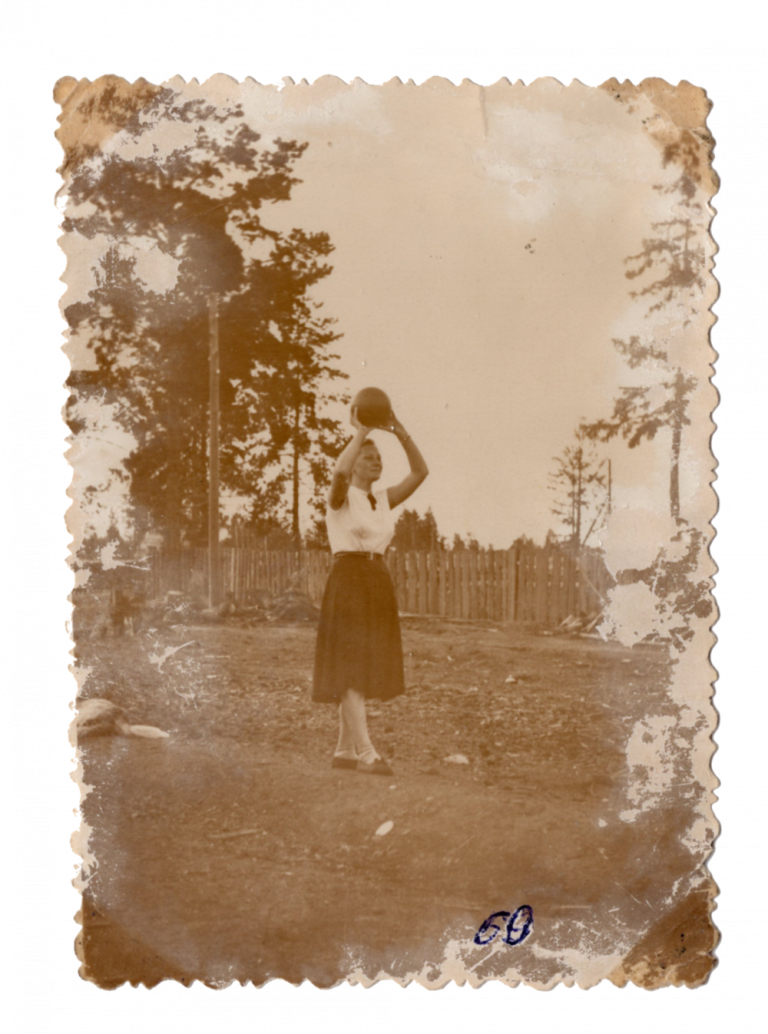
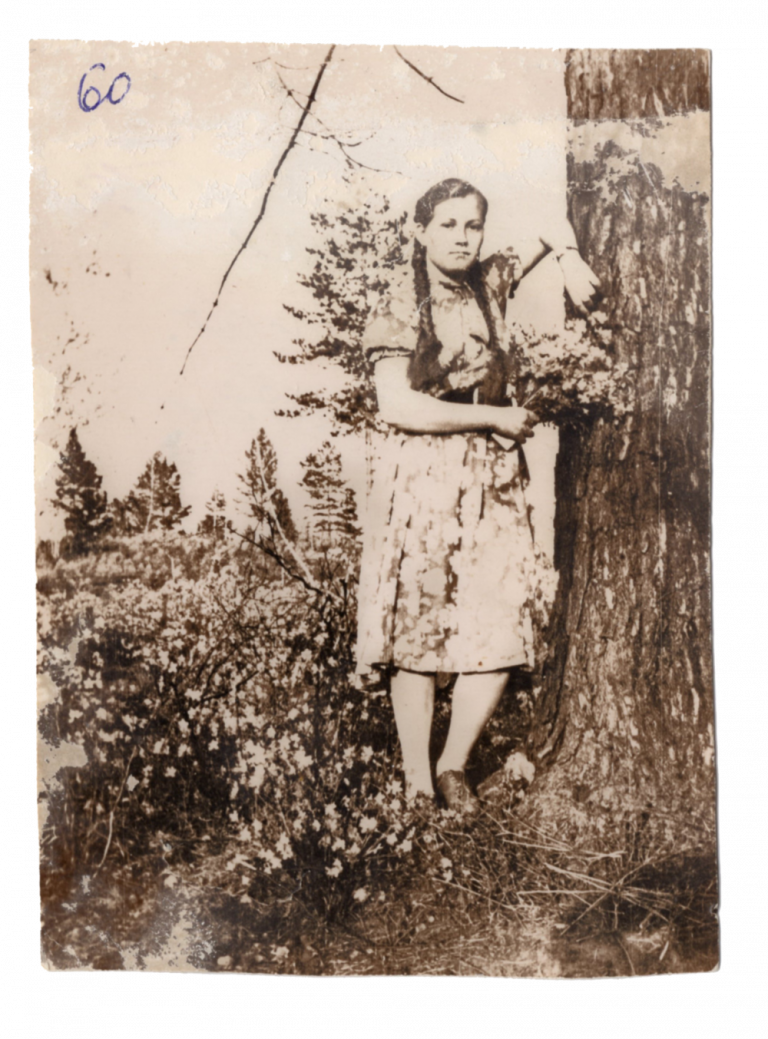
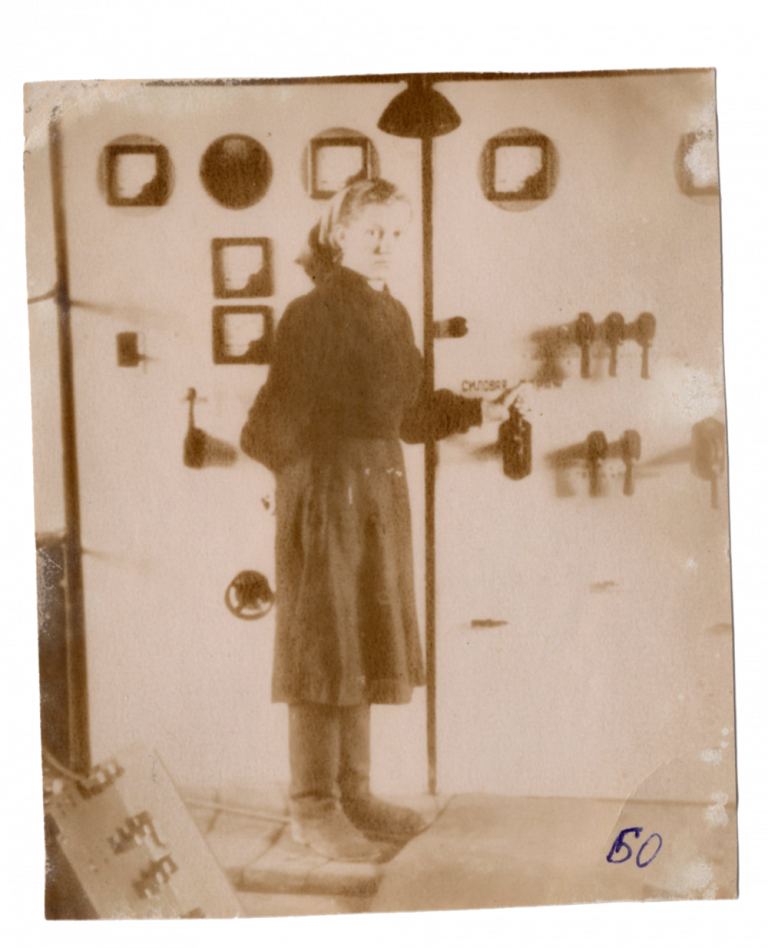
At the special settlement, the family had to go through survival school and adapt to new living conditions. Hanna put her childhood experience of living on eviction in the author’s poem “My Childhood”: (word-for-word translation)
My childhood smells like wormwood:
Like prickly thorn, mint, knotweed,
My older sister and mom’s embrace
Are burning bright in my wounded soul.
My native village, and our house there,
My grandma’s garden grew across the road,
and I was six years old, that’s not a big number,
I ran often there and then came back.
I still remember the ash-tree growing along the road,
It was old, twisted, and almost without branches,
And storks made a nest on its top.
On Christmas holidays we were caroling;
It seemed to me that it would always be so,
But my childhood suddenly came to an end,
We did not expect anything bad to happen on that evening.
Strangers came to my home,
As we were setting a didukh under the table at that moment,
And my mother was scattering nuts in the wheat straw,
Children were trying to find them and were having fun,
We were given 2 hours to pack everything for the road,
And then they escorted us outside.
My childhood ended so suddenly,
It was ruthlessly taken away by the Kremlin beast.
I remember that terrible freight train,
With bars on the windows, and a piss can in the corner,
Adults in despair were turning their eyes away from children,
And outside the window, there was a foreign land, not our land.
Years had passed, we returned home,
I remembered that winter for the rest of my life,
My grandmother’s garden was gone,
There was no old ash-tree with the nest of storks.
In 1956, the father found the family in a special settlement. He was released from the Gulag camps. Hanna and her family were able to return to Ukraine only in the 1970s.
